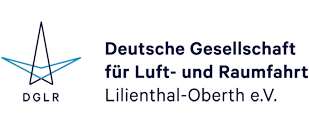DGLR-Publikationsdatenbank - Detailansicht
Autor(en):
P. Lorrig, M. Ilic, M. Biella, Z. Daw
Zusammenfassung:
AI-models could be leveraged for human performance evaluation with high accuracy, reliability and objectivity. Existential for properly training and applying AI-models are relevant, sufficient and reliable data. Two flight simulator studies were conducted with the aim to measure and collect flight but foremost physiological data from flight crews during flight deck activities. In the Air VEhicle Simulator (AVES, DLR Braunschweig) certified A320 flight crews (n = 42) performed various short flight scenarios, allowing a controlled experiment environment for data collection. These data were then post-processed in order to get a time synchronous signal between ECG and stress level feedback. Data from both studies were analyzed and a paired-sample t-test was conducted for the second studys data. Data collected during that study showed significant differences between the two Scenarios (Baseline and Stress) in feed-backed stress levels (p < .001) and measured heart rates (p < .05). Nevertheless, there are still recognizable gaps in duration and intensity of high stress as well as in gender diversity. Overall, about 39 h of physiological data have been recorded from flight crews during flight deck activities which are made publicly available.
Veranstaltung:
Deutscher Luft- und Raumfahrtkongress 2023, Stuttgart
Verlag, Ort:
Deutsche Gesellschaft für Luft- und Raumfahrt - Lilienthal-Oberth e.V., Bonn, 2024
Medientyp:
Conference Paper
Sprache:
englisch
Format:
21,0 x 29,7 cm, 6 Seiten
URN:
urn:nbn:de:101:1-2024011014430750546445
DOI:
10.25967/610521
Stichworte zum Inhalt:
Human Performance, AI Systems, Human Factors
Verfügbarkeit:
Kommentar:
Zitierform:
Lorrig, P.; Ilic, M.; et al. (2024): Data Generation for AI-Based Human Performance Evaluation for Flight Crews. Deutsche Gesellschaft für Luft- und Raumfahrt - Lilienthal-Oberth e.V.. (Text). https://doi.org/10.25967/610521. urn:nbn:de:101:1-2024011014430750546445.
Veröffentlicht am:
10.01.2024
